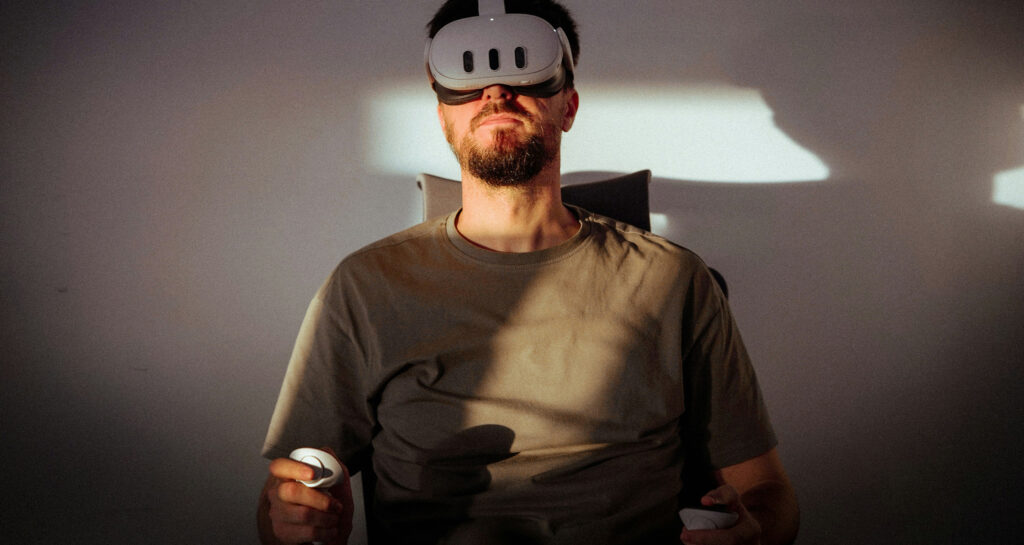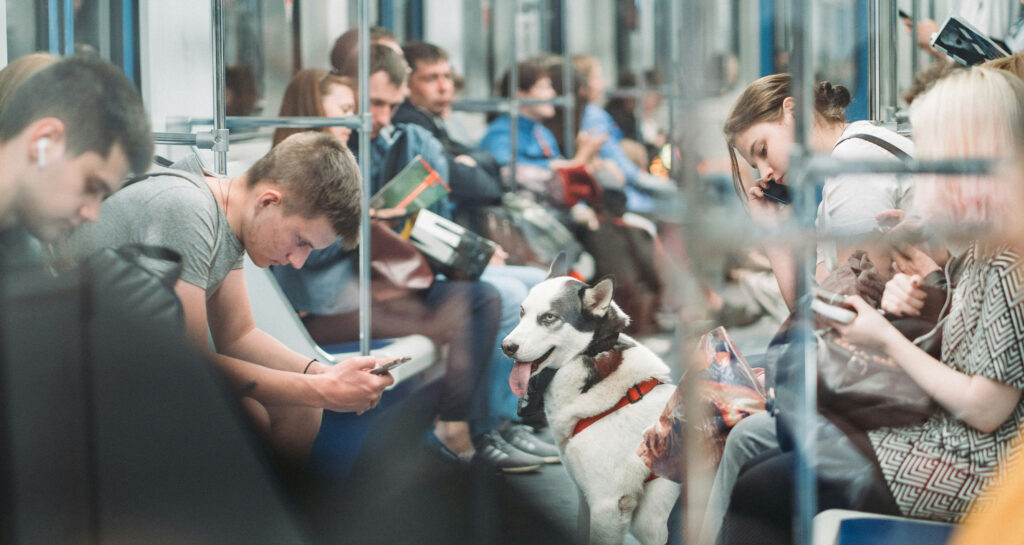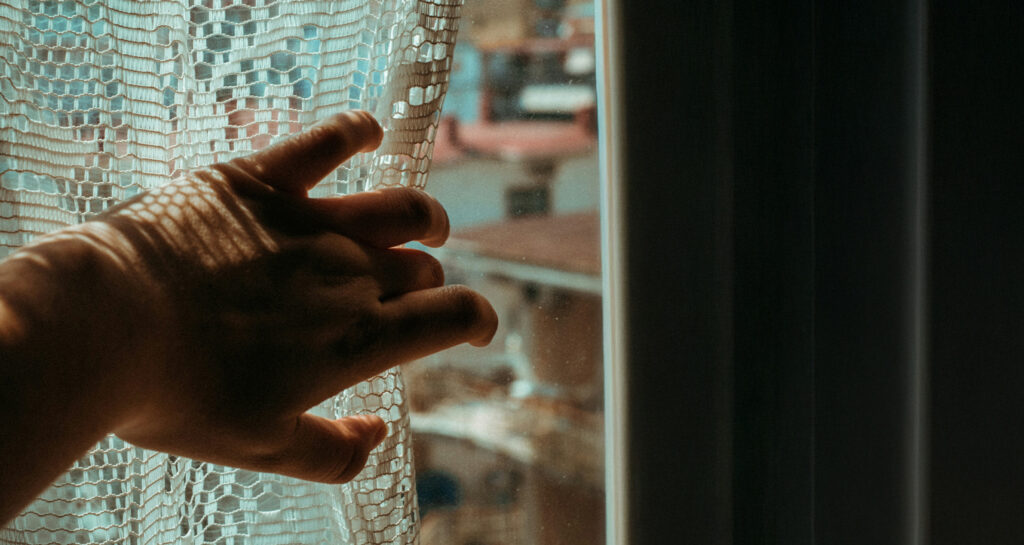The loneliness industrial complex: How transhumanism profits from our isolation
Published on August 27, 2025

What do loneliness and transhumanism have in common? They are built from the same foundation.
In the 1990s, Mother Teresa said something that most people in the West still haven’t recovered from:
“The greatest disease in the West today is not tuberculosis or leprosy; it is being unwanted, unloved, and uncared for. We can cure physical diseases with medicine, but the only cure for loneliness, despair, and hopelessness is love.”
It wasn’t poetic. It was prophetic.
Fast forward three decades, and loneliness is no longer just a quiet ache in the heart. It’s become an industry. There’s a well-established market and business model around it, usually disguised as wellness and mental health. It is our loneliness that usually leads to depression, anxiety, and this expands to our physical health; and while working out, going to therapy, and eating your veggies are very important, none of these things will satisfy the ache in our hearts.
We are lonelier than ever, and someone out there is always ready to profit from that ache.
Enter: the loneliness industrial complex.

Welcome to the new marketplace of love
Transhumanism, once a fringe fantasy of sci-fi authors and eccentric philosophers, is now in full swing. And at its heart is a promise: We can fix your pain with technology.
But when that pain is loneliness, the “solutions” look like this:
- AI girlfriends who text you sweet nothings on demand.
- Sex robots are engineered to mimic consent, desire, and affection.
- Synthetic wombs so you can design a family without needing one.
- VR intimacy that offers the illusion of closeness without the reality of commitment.
- Afterlife avatars to chat with your dead loved ones and never say goodbye.
It’s marketed as innovation and progress, but these alternatives may help people feel less lonely, but they won’t actually make us any less lonely. If any, we are running the risk of becoming even lonelier as we craft a world in which we don’t have to endure conflict or tensions with others, because we have perfect avatars we can interact with. The result is a wider gap between people.
What these marketable solutions really are… is the commodification of our ache.

The simulation of closeness
The ultimate irony? In trying to escape the pain of loneliness, we’re being sold its permanent simulation. Transhumanist tech doesn’t actually heal loneliness – it just manufactures its shadow. A version of connection without effort. Without inconvenience. Without intimacy.
We used to say, “You can’t buy love.” Now you kind of can. But it’s not real.
We’re paying subscriptions to avoid rejection. We’re downloading apps to bypass the vulnerability. We’re building wombs in labs so we never have to ask someone to walk beside us through the hard times. We are building risk-free relationships and in doing so, taking away the beauty of genuinely loving and being loved. We are losing what money can’t buy.
It’s the perfect product: no emotional mess, no conflict, no human unpredictability. But also: no meaning.

How did we get here?
We got here because we made individualism a religion and a norm. If we are to label cultures by their core beliefs and attitudes, individualism is certainly the rule of the West.
We prioritized freedom over family, self-optimization over service, and personal healing over shared sacrifice. We lost the plot and started thinking that life was about self-sufficiency, when in reality, we were designed for interdependence. We abandoned the messy, beautiful, exhausting work of love in favor of ease. And now we find ourselves yearning for connection, but allergic to what it requires: presence, patience, pain.
We didn’t want to be needed or bothered. Now no one is needed. And all we got is loneliness.
I must say there is evidence that this is affecting men at much higher and alarming rates than women. While women may get lonely, women also tend to be favored by higher social emotional intelligence and a natural inclination to be vulnerable with each other. We tend to gather and talk about what’s on our minds, while men retreat and become lonelier and lonelier.

The myth of being “too much” or “not enough”
A lot of this started with fear. The fear of being rejected, the fear of being a burden, and the fear of intimacy. So we pulled back. We convinced ourselves it’s better to be alone than to risk being unwanted. And now? The market has heard us loud and clear. “You don’t want to be too much? No problem. Here’s a partner who won’t require anything from you. Who exists only to affirm you.”
But the truth is, you were never too much. You were just a person. Flawed, radiant, needy. And neediness isn’t weakness, it’s human.
We’ve changed our language to now associate words such as neediness, dependency, and heartbreak as negative things, while they’re a basic aspect of simply being human.

What transhumanism can’t replace
I do not doubt that the technologies will just get better each day, but no matter how good it gets, an AI girlfriend can’t hold your face in her hands when you’re crying. No synthetic womb can cradle your baby to her chest and whisper lullabies. No VR experience can replicate the sacred awkwardness of falling in love and fumbling through it together.
Our relationship problems and challenges aren’t glitches to be optimized. They’re the point. And the more we try to automate love, the further we drift from its source. Because the cure for loneliness isn’t better tech. It’s better love.

The solution is still the same
There’s no hyper-innovative way out of this. The way out is not found in a lab or a startup pitch deck. It’s found in the ordinary, sacrificial, inconvenient beauty of real connection.
1. Return to family life
Not the perfect Instagram family. The real one. The one where people disappoint you and you still show up. The one where love is taught, not just felt. Where you matter not because of what you offer, but because you belong.
2. Invest in your friendships like your life depends on it
Because it does. Text the friend back. Show up. Keep calling even when they don’t reply. Stop treating friendship like a background task and start building something unshakable.
3. Rediscover the beauty of being needed
We’ve become terrified of dependence. But being needed means you have value. And needing someone else doesn’t make you a failure, it makes you human. Mutual dependence isn’t a burden. It’s love’s foundation.
4. Suffer together instead of alone
Stop trying to outsource your suffering to machines. Share it. Let someone into your pain. Hold someone else in theirs. That’s where intimacy begins, not in the easy, but in the shared ache.
As they say: Suffering shared is love deepened.

What happens if we don’t stop this
If we don’t wake up now, this future gets darker. We’ll have children born of factories, not affection. We’ll have intimacy without trust. Families replaced by algorithms. Friendship turned into a customer service bot. We’ll be connected to everything while belonging to nothing. Always stimulated, but never loved.
And the worst part? We’ll think we’re fine. Because the illusion will be just good enough.

Final thoughts: We don’t need “perfect” love. We need people.
Transhumanism is only growing faster, cheaper, and more seductive by the day. But love is still stronger, and love can still win. This will largely be a personal choice, as some may succumb to the temptation and give up their relational life to the available technologies. Others will fight harder and be more intentional about real love and all the messiness that may come with it.
You don’t need an AI girlfriend. You need someone who forgets your coffee order but remembers your pain. Someone who may forget to do his or her chores, but won’t forget the inside jokes that make your relationship so unique. We all need someone who’s awkward, imperfect, and present. You don’t need a synthetic womb to do the tough job on your behalf. You need the raw, holy, chaotic journey of motherhood shared with others. You don’t need to simulate heaven. You need to make the world more joyful by simply being there for each other. Because the cure for loneliness is not found in a lab. It’s found in you and in me. In our ability to stop numbing and start loving.




What an incredible read. Thank you for this!
Great article – so well said.
Thank you, I needed #4 to inspire me to work on a relationship hurt to the bone.
Thank you !
I couldn’t agree more. Amen
Thank you for this very enlightening article! I’ve always believed that “just because we can, doesn’t mean we should “.
This is a major issue that needs to be highlighted more often. Very insightful and well written. Mother Theresa was right. Thank you for sharing. Michael